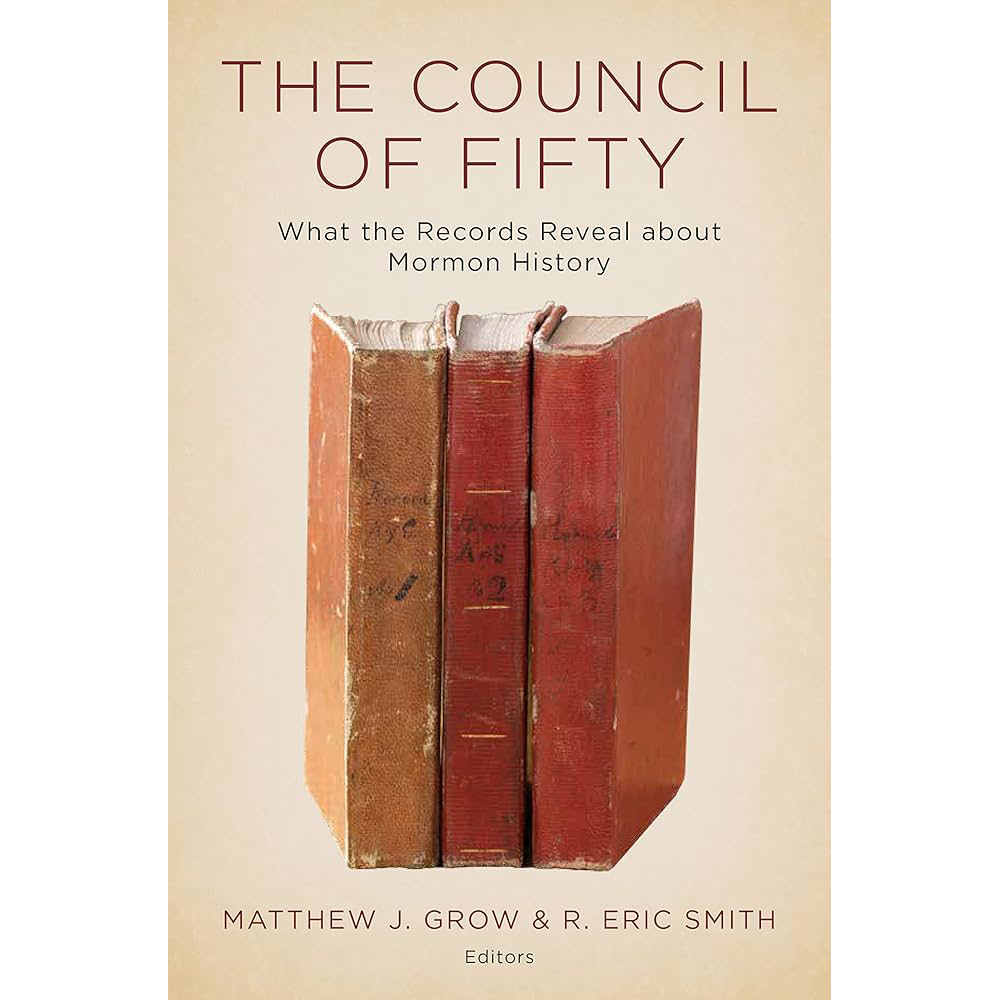FREE SHIPPING on orders of $49 or more. Exclusions apply.
The Council of Fifty
The Council of Fifty

- Select Styles for Availability
Through this purchase, you are granted a license to the relevant Digital Goods (including but not limited to eBooks, audiobooks, and podcasts) subject to our Digital Goods License.
eBooks and Audiobooks (Digital) are delivered instantly to the Deseret Bookshelf app. They are not compatible with Kindle or other e-reader devices. Digital items cannot be gifted, returned, nor refunded.
Three months before his death, Joseph Smith established the **Council of Fifty**, a confidential group he believed would protect the Latter-day Saints in their political rights and one day serve as the government of the kingdom of God. The Council of Fifty operated under the leadership of Joseph Smith and then Brigham Young, playing a key role in Joseph Smith's presidential campaign and in preparing for the Mormon exodus to the West.
For over 160 years, the council was the subject of intense speculation because its minutes had never been available. That all changed when the Joseph Smith Papers published the official minutes in September 2016, providing scholars and historians with unprecedented access to its inner workings.
In this groundbreaking book of short essays, fifteen leading Mormon scholars explore how the newly available minutes alter and enhance our understanding of Mormon history. They narrate and analyze the contributions of these records to key historical questions, including:
- Joseph Smith's views on earthly and heavenly governments
- The 1844 presidential campaign
- Mormon relationships with American Indians
- Explorations of possible settlement sites, such as Texas and California
- The "lost teachings" of Latter-day Saint leaders from that era
- Brigham Young's leadership style
Table of Contents
The fifteen essays in this collection are as follows:
- Richard Lyman Bushman, “The Separatist Impulse in the Nauvoo Council of Fifty”
- Richard E. Turley Jr., “Injustices Leading to the Creation of the Council of Fifty”
- Spencer W. McBride, “The Council of Fifty and Joseph Smith’s Presidential Ambitions”
- Patrick Q. Mason, “God and the People Reconsidered: Further Reflections on Theodemocracy in Early Mormonism”
- Benjamin E. Park, “The Council of Fifty and the Perils of Democratic Governance”
- Nathan B. Oman, “‘We the People of the Kingdom of God’: Constitution Writing in the Council of Fifty”
- Gerrit J. Dirkmaat, “Lost Teachings of Joseph Smith, Brigham Young, and Other Church Leaders”
- R. Eric Smith, “Insights into Mormon Record-Keeping Practices from the Council of Fifty Minutes”
- Matthew J. Grow and Marilyn Bradford, “‘To Carry Out Joseph’s Measures Is Sweeter to Me Than Honey’: Brigham Young and the Council of Fifty”
- Jeffrey D. Mahas, “American Indians and the Nauvoo-Era Council of Fifty”
- Matthew C. Godfrey, “A Monument to the Saints’ Industry: The Nauvoo House and the Council of Fifty, 1845–46”
- Christopher James Blythe, “‘With Full Authority to Build Up the Kingdom of God on Earth’: Lyman Wight on the Council of Fifty”
- Richard E. Bennett, “‘We Are a Kingdom to Ourselves’: The Council of Fifty Minutes and the Mormon Exodus West”
- Jedediah S. Rogers, “The Council of Fifty in Western History”
- W. Paul Reeve, “The Council of Fifty and the Search for Religious Liberty.”

